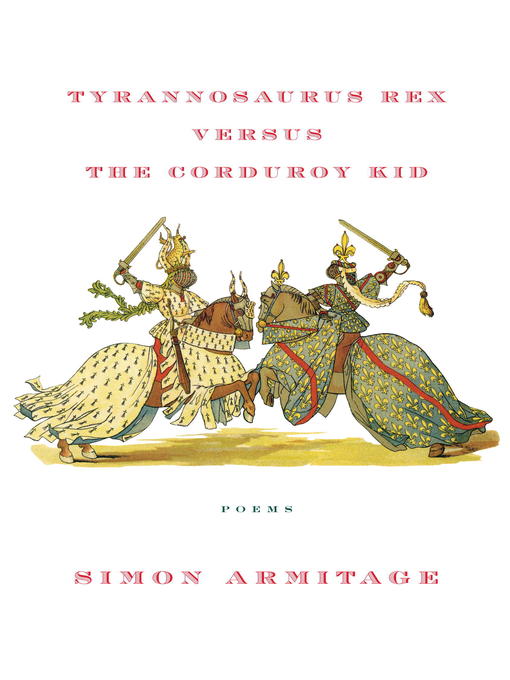
Tyrannosaurus Rex Versus the Corduroy Kid
کتاب های مرتبط
- اطلاعات
- نقد و بررسی
- دیدگاه کاربران
نقد و بررسی

Starred review from July 21, 2008
Armitage is one of the U.K.’s most popular, important and prolific poets—as well as a writer for TV and radio, a translator, a teacher and a member of a rock band. Following his 2005 selected poems The Shout
, as well as a recent translation of Sir Gawain
and a dramatic version of The Odyssey,
this is Armitage’s first individual collection to appear in the U.S., and it’s high time. The collection, Armitage’s 11th, amounts to an ambitious, personal meditation on the ugliness of life in a Western civilization at war with the Middle East, something Americans and the British have in common. A passage from the Cyclops section of The Odyssey
, in which the hero and his crew commit an “act was to haunt us,” sets the stage for haunted political poems like “Republic,” where the government forbids all but one color of car each day of the week, and “After the Hurricane,” in which citizens “drink and smoke/ amongst mortar and bricks, here at empire’s end.” More personal poems bring the same feeling home with darkly self-deprecating humor: “I’m ugly because I proved God to be a mathematical impossibility.” This collection attests that Armitage deserves to be seen as major poet at the peak of his powers on both sides of the pond.

October 15, 2008
Women of the Merrie England Coffee Houses "wiped the crumbs from under our genius poems." A beautiful "you" and an ugly "I" offer startling contrasts: "You're beautiful because you prefer home-made soup to the/packet stuff./I'm ugly because once, at a dinner party, I defended the/aristocracy and wasn't even drunk." A string of "Sympathy" poems capture stories that are creepy or sad, with one ending with a father's cri de coeur about a birthmarked child: "blemish me for me sins. Punish me, not'er." British poet Armitage ("Zoom!") writes poems that can be bizarre, dark, or weirdly playful, but you never feel that he's trying to shock you for shock's sake. Instead, he uses twisted little scenarios and fresh language to wake you up. The result is a strong, effective, and affecting work that ought to be read by anyone serious about poetry.Barbara Hoffert, "Library Journal"
Copyright 2008 Library Journal, LLC Used with permission.

























دیدگاه کاربران